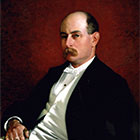
Gilt Trip
How the “Boston Brahmins” of the late nineteenth century laid the foundations for modern American capitalism.


How the “Boston Brahmins” of the late nineteenth century laid the foundations for modern American capitalism.

Without a much larger movement to overcome New York’s political machine, a constitutional convention risks rolling back progressive victories—not adding to them.

How did a sculptor with neo-Confederate leanings find a home in one of the twentieth century’s most influential liberal salons?

As American workers face down the national right-to-work regime threatened by Janus v. AFSCME, the Wagner Act’s vision of workplace democracy bears revisiting.

Corey Robin talks about the new edition of his book, The Reactionary Mind, and Donald Trump’s conservative pedigree.
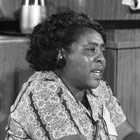
A shrewd movement strategist, Fannie Lou Hamer rose from abject poverty to reshape the American political order.
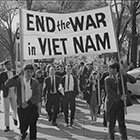
In their new documentary series The Vietnam War, Ken Burns and Lynn Novick offer a sharp indictment of an atrocious war. But when it comes to portraying the antiwar movement, they lapse into troubling stereotypes.

Kim Phillips-Fein discusses her new book, Fear City: New York’s Fiscal Crisis and the Rise of Austerity Politics, and who killed the social-democratic city.
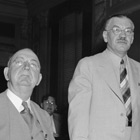
How did private insurance companies come to control U.S. health care—and make our coverage the most expensive in the world?

Judith Stein was a tough and determined inspiration to multiple generations of scholars and activists.
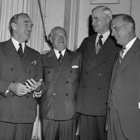
From the 1920s to today, American tax policy has evolved to reflect one principle—the investor comes first—with disastrous implications for the rest of us.
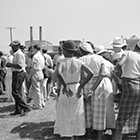
Two new histories show how the CIO of the 1930s and ’40s led the charge for racial equality not just on the shop floor but at the national level, precipitating the Democratic Party’s embrace of civil rights.

For nearly two centuries, immigrants have been among the U.S. left’s most important partisans. As a new mass movement comes into being, they must again be at the heart of it.
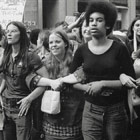
While its vision of equality is still far from being fully realized, the women’s liberation movement of the 1960s and ’70s won important victories and offers vital lessons for today’s organizers.

We can never allow Donald Trump’s politics to be normalized in the way that Ronald Reagan’s have been.